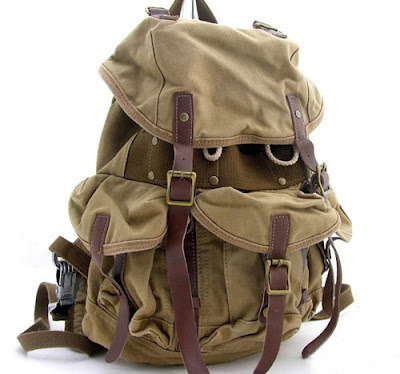Repacking the Invisible Knapsack: White Privilege and the Killing of Trayvon Martin

Repacking the Invisible Knapsack: WhitePrivilege and the Killing of Trayvon Martin
by Lori Latrice Martin | special to NewBlackMan
Unpacking the Invisible Knapsack, a now classic work by Dr. Peggy McIntosh,addresses white privilege. Specifically, McIntosh outlines the unearnedbenefits that whites receive by virtue of their birth. Many whites, saysMcIntosh, have a difficult time seeing the daily profits associated with being white in America.She adds that while whites may acknowledge that racial and ethnic groups facedisadvantages, most have been taught not to see white advantages. She describesthe benefits associated with white privilege as "an invisible package ofunearned assets," filled with "special provisions, maps, passports, codebooks,visas, clothes, tools and blank checks."
McIntosh evenprovides us with a list some of the daily privileges she enjoys as a whitewoman that her colleagues, friends, and acquaintances of color, rarelyexperience. She says,
1. I can if I wish arrange to be in the company ofpeople of my race most of the time.
2. If I should need to move, I can be pretty sure ofrenting or purchasing housing in an area, which I can afford and in which Iwould want to live.
3. I can be pretty sure that my neighbors in such alocation will be neutral or pleasant to me.
4. I can go shopping alone most of the time, prettywell assured that I will not be followed or harassed.
5. I can turn on the television or open to the frontpage of the paper and see people of my race widely represented.
In light of thetragic shooting death of 17-year-old, Trayvon Martin it's time to revisit thelist. The killing of Trayvon, an African-American male, at the hands of28-year-old George Zimmerman, is an unfortunate reminder of the continuing significanceof race. It is a reminder that the election of the nation's first blackpresident, while historic and powerful, is no match for the enduring racializedsocial system that has been at the core of American society since the birth ofthis great nation.
Many of us havebeen telling anyone who will listen, that race still matters. Such calls wereoften dismissed by blaming the victim. Unarmed black men who have been met withfatal violent force, (and the list continues to grow), are often vilified. Theywere, "in the wrong place at the wrong time" or they were "up to no good".
Trayvon Martin wasdoing what many other kids were doing on February 26, 2012. He was getting asnack and talking on his cell phone, but for Zimmerman, and others, these veryacts, when draped in blackness and clothed in a hooded sweatshirt, arousessuspicion. Now, a mother and father must bury their child.
The killing ofTrayvon Martin is heartbreaking. The failure to arrest George Zimmerman is aninsult to fair-minded Americans, simply put, it's an injustice. Thecircumstances surrounding the killing of young Trayvon Martin, adds morebaggage to the invisible knapsack. McIntosh's list must now also include thefollowing:
1. I can be confident that if I give my sonpermission to go to the store that he will return unharmed.
2. I can be sure that if my son is harmed, less than100 feet from my home, that efforts will be made to not only identify my child,but to also notify me.
3. I can be sure that the clothes my son leaves thehouse in will not be lead others to look upon him with suspicion.
4. I can be confident that, should my son be thevictim of a fatal violent crime, that law enforcement will neither assume thathe was the aggressor, nor take the word of his killer, without a thoroughinvestigation.
5. I can know that if my son is killed that thekiller will be the one tested for the presence of drugs and/or alcohol in hissystem.
6. I can be sure that, should my son be the victim ofa fatal shooting, that individuals and organizations that support me in myeffort to seek justice will not be called agitators and racial ambulancechasers. 7. If my son is the victim of a fatalact of violence and there are concerns about how the case is being handled, Ican be reasonably sure that mainstream media will provide immediate coverage. 8. If my son is killed, I can be surethat, if 911 tapes exist, they will be released without me having to collecthundreds of thousands of signatures through the use of social media.
9. If my son dies at the hands of another, I can havetime to grieve his death and not have to do the investigative work that iscommonly done by law enforcement officials.
10. If my son is killed and the identity of hiskiller is known, I can be sure that the killer will, at the very least, bearrested.
It's time to unpackthe knapsack and get rid of all this racial baggage. Justice for TrayvonMartin!
***
Lori Latrice Martin is AssistantProfessor at John Jay College of Criminal Justice where her research areasinclude race and ethnicity, wealth inequality and asset poverty. Professor Martinis currently working on a book project about black asset poverty in New YorkCity. Dr. Martin specializes in Demography, Race and Ethnicity, Race and Wealthand Community Development.
Published on March 24, 2012 15:07
No comments have been added yet.
Mark Anthony Neal's Blog
- Mark Anthony Neal's profile
- 30 followers
Mark Anthony Neal isn't a Goodreads Author
(yet),
but they
do have a blog,
so here are some recent posts imported from
their feed.



